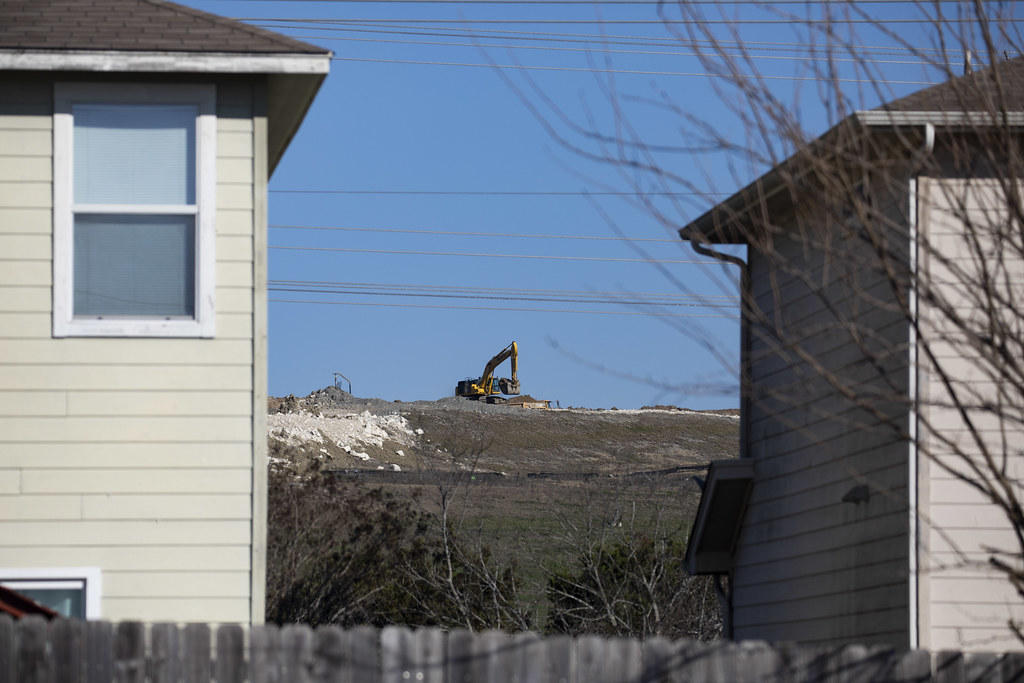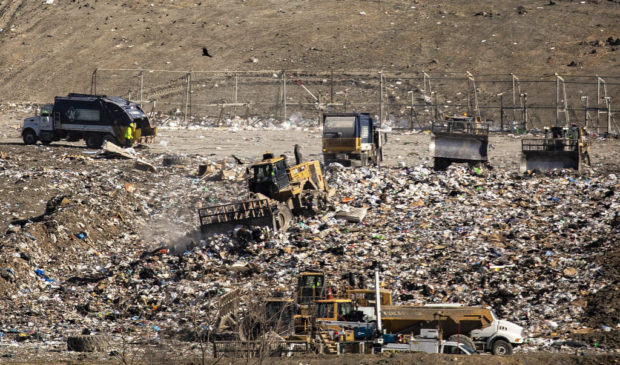Opponents of Austin trash transfer station take their case to the state
Friday, February 7, 2020 by
Mose Buchele, KUT The Texas Commission on Environmental Quality held a public hearing Thursday night on a proposal to build a garbage transfer station in North Austin. The project is facing growing opposition from public officials, neighbors and environmental groups.
The Austin Community Landfill off U.S. Highway 290 is filling up fast. According to its owner, Waste Management, the landfill will be too full to store garbage in about five years, so it wants to build a way station to bring in garbage from local customers and haul it out to other landfills.
“The need to take out the trash is going to continue, and this transfer station will provide a viable solution for continued waste disposal,” the company said in a media statement on the project.
Residents who live nearby say that will worsen problems they’re already having with the landfill; for years, they have complained of foul smells, rodents and heavy traffic.

But as the landfill has grown, so has the community around it.
“Forty years ago, this landfill was not surrounded by homes on every point of the compass,” state Rep. Celia Israel, who represents the area in the Texas House, told KUT. “We’ve been dealing with horrible fumes. Many of us, on many nights, cannot sit outside.”
Environmental groups have also entered the debate, arguing that the transfer station runs counter to Austin’s goal of becoming a zero-waste city.
“Building out even more of this trash infrastructure, especially when you’re talking about a company that has not shown any interest in contributing positively to our zero-waste goals, is not in the best interest of Austin,” Jeff Jacoby, deputy director of Texas Campaign for the Environment, said.
To build the way station, Waste Management needs to get permits from the Texas Commission on Environmental Quality.
This story was produced as part of the Austin Monitor’s reporting partnership with KUT. Photos by Gabriel C. Pérez/KUT.
The Austin Monitor’s work is made possible by donations from the community. Though our reporting covers donors from time to time, we are careful to keep business and editorial efforts separate while maintaining transparency. A complete list of donors is available here, and our code of ethics is explained here.
You're a community leader
And we’re honored you look to us for serious, in-depth news. You know a strong community needs local and dedicated watchdog reporting. We’re here for you and that won’t change. Now will you take the powerful next step and support our nonprofit news organization?









